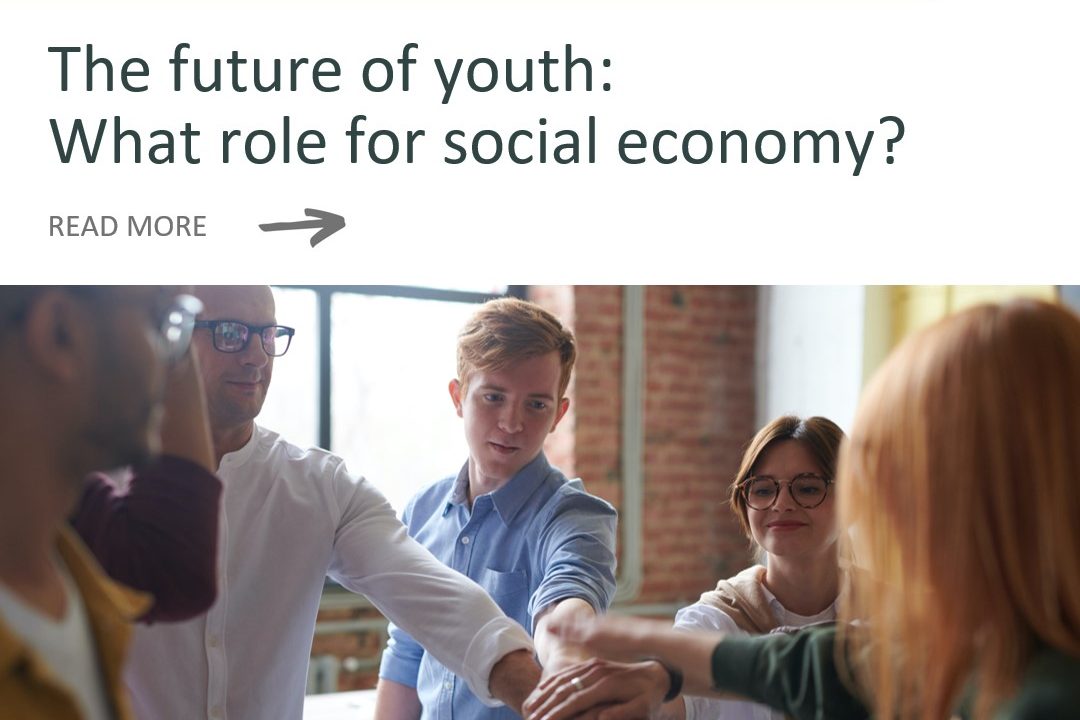Eleonora Lamio, Project Manager and Policy Officer
The future of youth is at the heart of the European Union’s interest and strategies. In particular, the European Commission brings great attention to the topic of youth employment, and mostly to youth unemployment. Despite the overall decrease of youth unemployment in the last seven years (from 24,2% in 2013 to 15,4% in 2020), the outbreak of the Coronavirus pandemic has, even more, emphasized the difficulties that young generations face when entering the EU labour market.[1]
Young people should be able to play an active role in the EU, both from a social and an economic point of view: this is a priority of the European Commission. Indeed, promoting youth employment is essential to allow young people to contribute to the European economy but also to unlock their skills and let them shape Europe’s future. This is why special attention is brought to the contribution that young people can bring to the digital and green transition.[2] Therefore, young people are at the heart of the recovery plan for Europe, Next Generation EU.
 To try to bring concrete solutions to this EU-level challenge, on the 1st of July 2020 the European Commission has published a communication “Youth Employment Support: a bridge to jobs for the next generation”. This communication has a double scope: to tackle youth unemployment and to provide young people with the skills they will need to face the future labour market. The Youth Employment Support sets ambitious objectives: to reinforce the Youth Guarantee, updating the EU’s vocational education and training policy, to shed a stronger light on apprenticeships and to bring additional measures to support young employment. It is estimated that, with Next Generation EU and the upcoming EU budget, €22 billion should be spent on youth employment support. This communication, and its willingness to invest in the future of youth, is also perfectly in line with the recent EU strategies and initiatives, such as the European Pillar of Social Rights and the EU Green Deal.[3]
To try to bring concrete solutions to this EU-level challenge, on the 1st of July 2020 the European Commission has published a communication “Youth Employment Support: a bridge to jobs for the next generation”. This communication has a double scope: to tackle youth unemployment and to provide young people with the skills they will need to face the future labour market. The Youth Employment Support sets ambitious objectives: to reinforce the Youth Guarantee, updating the EU’s vocational education and training policy, to shed a stronger light on apprenticeships and to bring additional measures to support young employment. It is estimated that, with Next Generation EU and the upcoming EU budget, €22 billion should be spent on youth employment support. This communication, and its willingness to invest in the future of youth, is also perfectly in line with the recent EU strategies and initiatives, such as the European Pillar of Social Rights and the EU Green Deal.[3]
The Youth Employment support underlines the important role that social economy and social entrepreneurship can have in facing youth unemployment, by creating decent and fair jobs and promoting social inclusion and social innovation. Indeed, two meaningful elements are stressed in this document.
 First of all, it is pointed out that the positive impact that social entrepreneurship has on the communities, from an economic, social and environmental point of view, encourages many young people to walk this path. This suggests that, with their job, young generations wish to have a real power and to bring a positive impact on their societies. Second, it is noted that social economy organisations, “are often more resilient to economic cycles”. Also, these kinds of enterprises can quickly adapt to the new social and economic changes, and are able to better include vulnerable categories, such as young people.
First of all, it is pointed out that the positive impact that social entrepreneurship has on the communities, from an economic, social and environmental point of view, encourages many young people to walk this path. This suggests that, with their job, young generations wish to have a real power and to bring a positive impact on their societies. Second, it is noted that social economy organisations, “are often more resilient to economic cycles”. Also, these kinds of enterprises can quickly adapt to the new social and economic changes, and are able to better include vulnerable categories, such as young people.
Since the social economy brings such a positive contribution to this topic, the Social Economy Action Plan, foreseen to be released in 2021, will feature a part dedicated to youth and entrepreneurial opportunities provided by the social economy. [4] [5]
Nevertheless, often the problem is not the lack of interest or motivation that young generations have in the social economy. Nor is their willingness to start their social entrepreneurial journey. Often the issue is the absence of concrete tools to get them started, or knowing how to find them. Awareness-raising, education, exchange of good practices and peer learning on social economy and social entrepreneurship should be further promoted.

This is why this theme is at the heart of Diesis activities. Each month Diesis focus on raising awareness about one Sustainable Development Goal, and February was dedicated to SGD 4 focused on Education and on ensuring inclusive and equitable quality education and promote lifelong learning opportunities for all.[6] In our case, we wish to raise awareness among young generations that social entrepreneurship could represent an empowerment tool for them. Additionally, in many of our projects, the core objective is to present social entrepreneurship as a way to enter the labour market and to create sustainable job places: e.g YSEH and CASYE project.[7] Moreover, Diesis is part of the Cost Action “Rural NEETs’ Youth Network (RNYN)” that aims to develop a model of comprehension for rural NEETs’ social exclusion risk and protective factors based on bio-ecological model. [8]
Finally, since many of our members work in the field of youth empowerment, education and social inclusion, Diesis, through our initiatives and active engagement in relevant platforms, wants to bring this topic to the heart of the network’s activities. We will continue to explore this topic, with the right balance between the EU priorities, the needs of the young people and all the actors in the Social Economy ecosystem within our network and beyond.
[1] https://ec.europa.eu/info/strategy/priorities-2019-2024/economy-works-people/youth-employment-support-bridge-jobs-next-generation_en
[2] https://ec.europa.eu/social/main.jsp?catId=1036
[3] https://ec.europa.eu/commission/presscorner/detail/en/ip_20_1193
[4] https://eur-lex.europa.eu/legal-content/EN/TXT/PDF/?uri=CELEX:52020DC0276&from=EN
[5] https://www.rreuse.org/youth-employment-support-a-bridge-to-jobs-forthe-next-generation-a-greener-future-ahead-of-european-youth/
